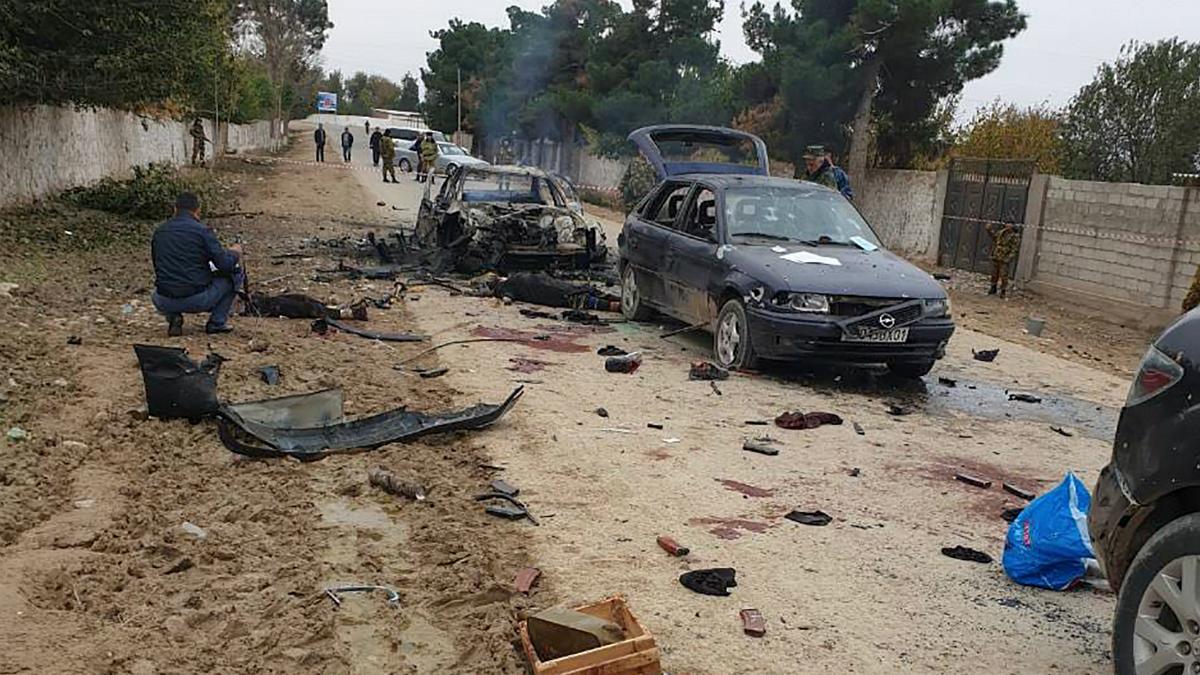Jafar Ghanaad Baashi in an interview with the site of Strategic Council on Foreign Relations explained about the history of ISIS presence in Afghanistan:” the history of ISIS presence in Afghanistan dates back to pre-Ashraf Ghani government fall and before Taliban took office there. However, from the very outset and like their presence in Iraq and Syria, ISIS activity was concentrated on suicide attacks on various gatherings. When Taliban took office in Afghanistan, they continued their suicide activities with explosions in assemblies through the same framework”.
Having referred to the point that ISIS was, at that time, recruiting their personnel clandestinely. They made effort to employ a part of their required Afghan forces to conduct their activities in the country who had returned home from Syria, he continued:” many reports disclosed by intelligent services on ISIS, suggest mostly that this sort of top secret training activities conducted in remote areas and far from public presence. Moreover, the reports emphasize that Shi’ite gatherings and assemblies were the targets of the group-let”.
Having stressed that coincided with the Americans withdrawal from Afghanistan, ISIS staged a number of suicide attacks, explosions and shooting Afghan people especially in the vicinity of Kabul Airport, the expert continued:” such measures taken by ISIS placed their movements and activities in the limelight of press and media reports under conditions when Taliban had just taken office in Afghanistan and it was trying to create a peaceful situation coincided with the U.S. forces withdrawal from the country”.
Ghannad Baashi also said:” at the time, many spoke of the difference between ISIS and Taliban as well as serious contradiction between them”. He continued:” at the time, the gist of analyses was concentrated on the point that ISIS was commissioned by Americans to destabilize the situation in Afghanistan after the withdrawal of the U.S. Army, and parallel with questioning Taliban’s capability to establish security, pretend the earlier performance of the U.S. Army in Afghanistan as positive that guaranteed security in the country”.
The expert explained:” another interpretation was; the initial objectives that put forward for ISIS were limited to questioning Taliban and appreciating the U.S. role to harbor security in Afghanistan. But after a few months passed and ISIS started its explosion operations in various provinces of Afghanistan, particularly the numerous explosions in Shi’ite mosques of the country, other objectives were added to the list of the functions of the terrorist group-let; including and among them was making large groups of Afghans immigrate to Iran, and at later stage, sparking border tensions between Iran and Afghanistan”.
He emphasized that:” Yet, most of regional and media experts believed that ISIS objectives were not limited to just harassment movements, and in view of the West as well as reactionary Arab investments, principally the group-let will pursue long tern objectives that will have strategic aspect”.
According to Ghannad Baashi, recent missile launchings by ISIS from Afghanistan territory on Tajikistan may be in indication of a stronger and more strategic role played by ISIS at the present junction of the region. He explained:” having launched missiles against Tajikistan, ISIS has managed to send a number of messages to the authorities of Afghanistan as well as neighboring countries. As the missile capability of the terrorist group-let can be considered as a noticeable and serious issue both inside Afghanistan and its neighboring countries, it is considered as challenging any of neighbors or even Taliban. The issue that basically ISIS alone had no role in planning or performing it. Certainly, such a capability may reflect the presence of Western, reactionary – Arabic, and even Zionist circles behind the scene of this stage of extraterritorial military operation”.
The expert of the Middle East issues believes that ISIS is very far from the desired stage it has in its mind. It requires a lot of time to set up missile launch systems and to train its operational teams. But, anyway, launching missile to Tajikistan is a clear indicative of the importance of ISIS role from the West point of view, particularly Washington”.
He ultimately said:” undoubtedly, the missile operation against Tajikistan is not irrelevant with Ukraine issue and the necessity to open new fronts surrounding Russia. As the missile launch may indirectly include the weakening of Iran’s role in Afghanistan in its agenda.










0 Comments